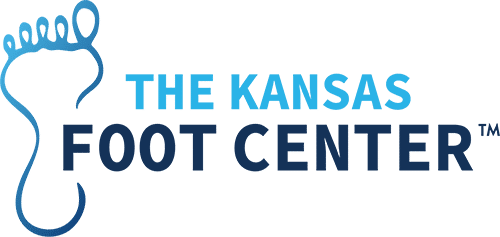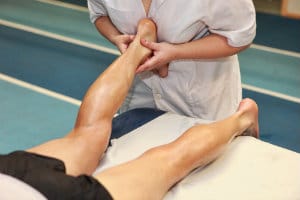Achilles Tendon Rupture
No tendon is stronger than the Achilles, but that’s far from a guarantee you are safe from injury. If a sudden jolt of force stretches the tendon beyond what it can bear, the fibrous tissue can pop, rupture, or even tear completely through. When that happens, sharp, severe, and swift pain can send you sprawling to the floor, and will likely cause significant reduction in your ability to bend your foot downward, push off to begin your stride, or even stand or walk properly.
Why Tendons Tear
The simplest explanation is that the tendon was stretched beyond the breaking point, and ultimately snapped after absorbing a jolt or impact it could not handle. However, there is often a confluence of factors that can contribute to an Achilles tendon rupture:
- Ramping up the intensity of your exercise or sports activity significantly in a short period of time. “Weekend warriors” are especially susceptible to tendon ruptures. Running, jumping, cutting, and other sports motions heavy on feet and ankles are more likely to produce ruptures.
- Tendons can weaken and lose flexibility with age, even if you remain relatively athletic overall. That makes middle age, from early 30s into the 50s, the prime years for tendon ruptures.
- Men are about five times as likely as women to suffer a tendon rupture.
- Certain antibiotics, steroid injections, and other medications may weaken tendon strength and increase the risk of a rupture.
Repairing a Ruptured Tendon
When it comes to treatment, there are essentially two options:
- Option 1: Tendon repair surgery. During the procedure, an incision will be made along the back of the lower leg so that the doctor can stitch the ruptured tendon back together. If necessary, we may need to graft on additional tendon tissue for reinforcement.
- Option 2: Nonsurgical treatment. If you choose this option, we’ll place you in a cast or walking boot, usually with inserted heel wedges to keep your tendon properly aligned as it heals.
Which Treatment Should You Choose?
Generally speaking, we tend to recommend surgery to most of our patients. That being said, there are strengths and weaknesses to each approach. We’ll be sure to discuss all the risks, benefits, and options with you beforehand so you can make an informed choice.
The main advantage of surgery is that recovery times tend to be faster. There is also some evidence suggesting that a surgically-repaired tendon may be less likely to rupture again, and easier to re-repair if necessary. Younger people, athletes, and those who need to be on their feet for work or other activities tend to go this route.
The main advantage of nonsurgical treatment is a lower risk of infections or complications relating to a surgical procedure. Older people, those who can take a little more time off their feet, and those with conditions that make surgery riskier may want to choose this option.
With either option, it will be important to take good care of your feet during the healing process and faithfully work through your rehabilitation program to re-train and re-strengthen the affected tendons and muscles.
If you rupture your tendon, immediate treatment is needed to help you limit the severity of the damage and get started on healing as quickly as possible. Make an appointment with Dr. Truong in Wichita at (866) 222-5177, and we’ll fit you in as soon as we can—sometimes even on the same day.

